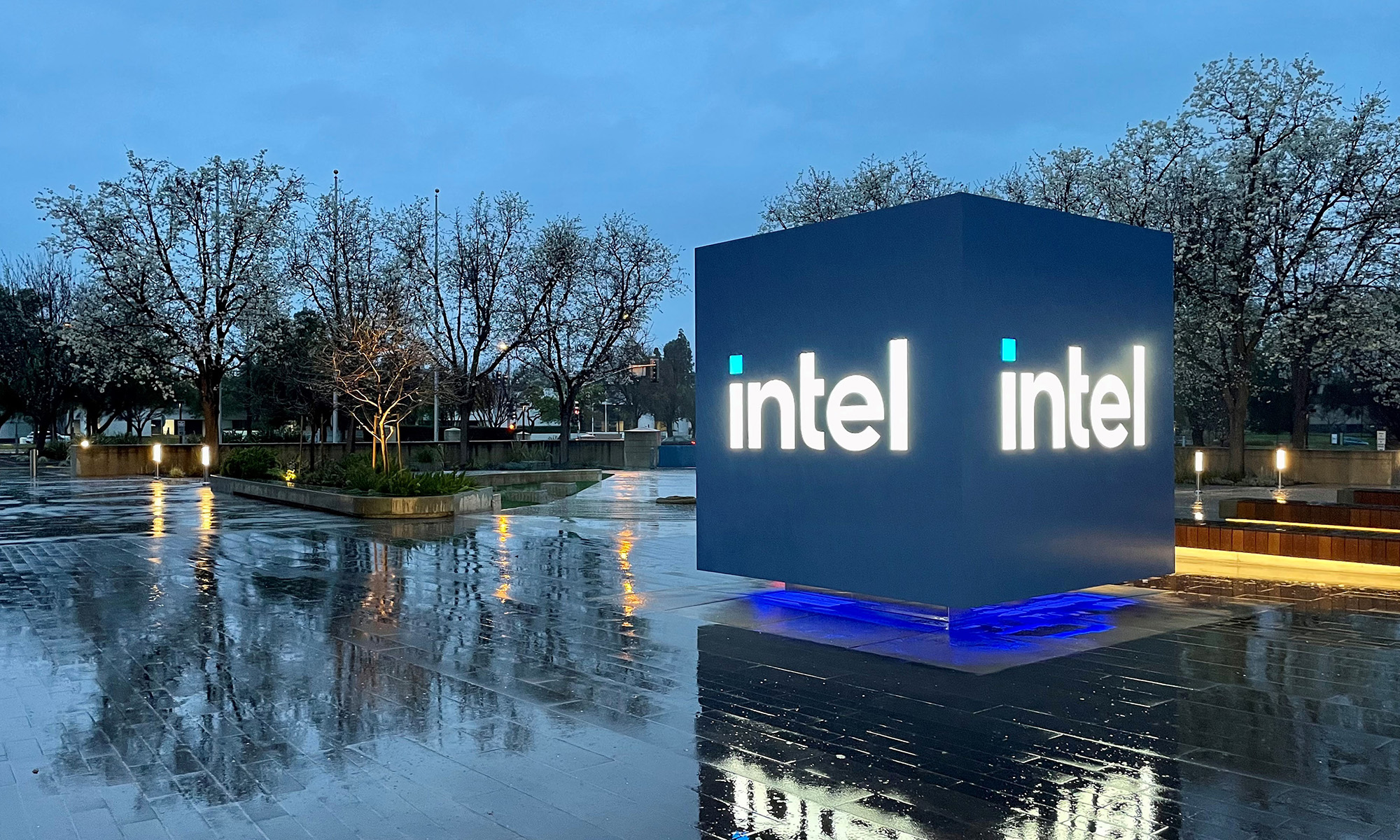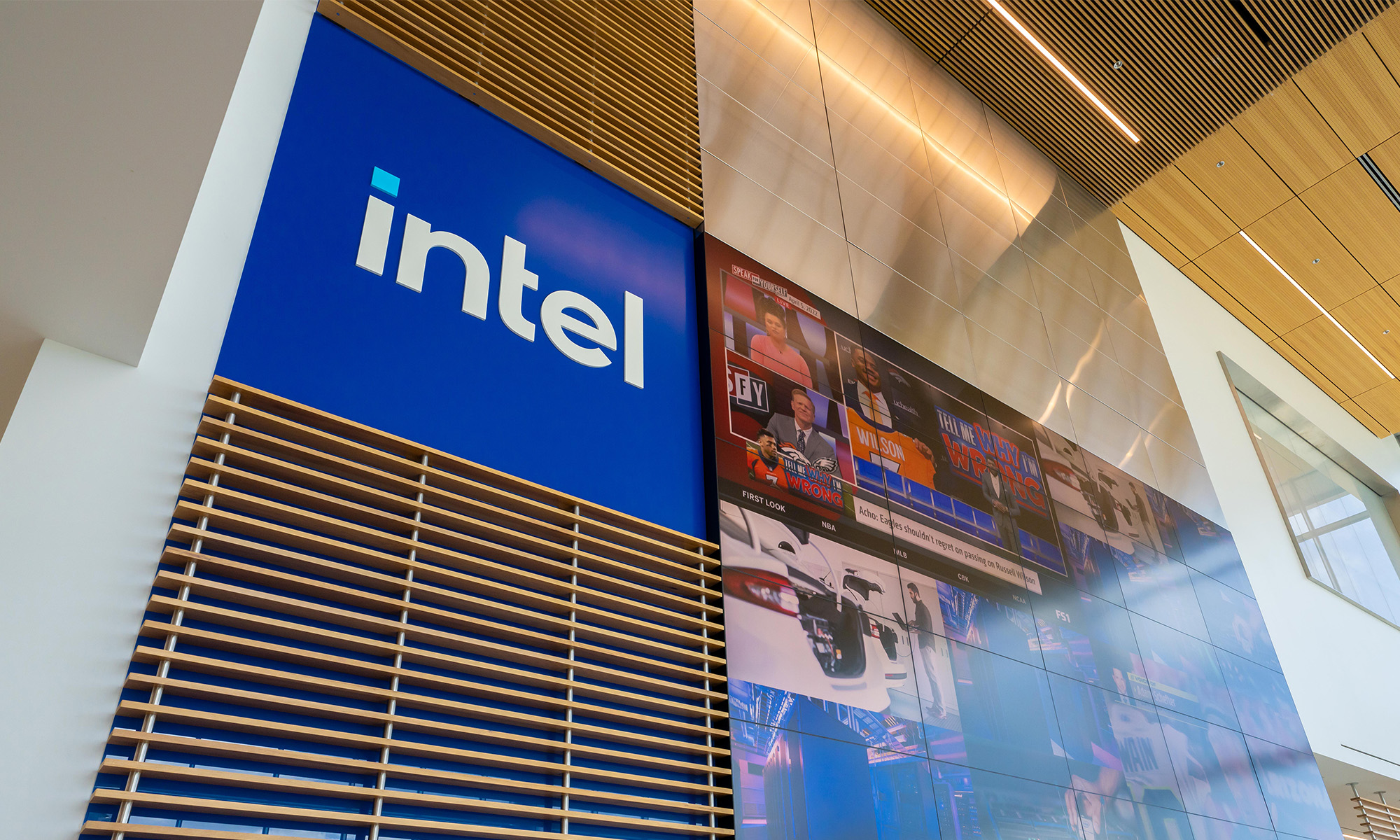Analysts with BlueFin Research Partners (by way of Tech Trader Daily) claim that the pace at which Intel (INTC 2.00%) is installing the equipment required to manufacture chips using its 10-nanometer technology at its Fab 28 in Israel "remain[s] on schedule" for mass production in the second half of 2017.
Intel has publicly stated that its goal is to begin mass production of chips using this 10-nanometer technology in the second half of 2017 with shipments by the end of the year.

Image source: Intel.
However, BlueFin has some troubling news: Intel is "struggling with defect/yield issues with this process for High Volume Manufacturing (HVM) release and have not locked down the complete process of records (PORs) to date."
The analysts say that "there are concerns that this ramp could be delayed by 2-3 months."
Not a surprise
Intel formally disclosed back at its Feb. 9 investor meeting that its next generation of personal computer processors -- which will be branded eighth-generation Core -- will be manufactured using the company's 14-nanometer technology, rather than its newer 10-nanometer technology.
Now, the company is still apparently planning to ship chips based on its 10-nanometer technology to its personal computer customers by the end of 2017, but is likely that these chips will only target the "2-in-1" subset of the broader personal computer market.
In other words, Intel will ship some 10-nanometer chips into some products just to be able to tell the public that it met its goal vis-a-vis 10-nanometer product timing, but it will keep the bulk of its volume on its current 14-nanometer technology during the eighth-generation Core product cycle.
Intel needs to sort these issues out in about a year
Fortunately, Intel appears to have readied an entire eighth-generation Core product stack built using its 14-nanometer technology. This means that between the second half of 2017 and the second half of 2018, Intel will have new products that it can sell to its customers (and around which its customers -- personal computer vendors -- can build new products).
However, it is likely too late for Intel to start planning a ninth-generation Core processor family built using its 14-nanometer technology to serve customers between the second half of 2018 until the second half of 2019. The company needs to get its 10-nanometer technology into robust shape over the next year, otherwise it will be faced with two unappealing options:
- Intel starts manufacturing ninth-generation Core processors based on its 10-nanometer technology on schedule and simply suffer margin erosion as low yields translate into higher-than-anticipated cost structures and potential supply issues, or
- Intel delays releasing its ninth-generation Core processors until it can fix its manufacturing yield/cost structure issues. This would mean leaving system vendors high and dry without new processors. To placate said customers, Intel would likely need to resort to discounts on older chips, once again hurting margins.
At this point, I don't think investors can be confident that Intel will work out the issues in time to avoid the above consequences; the company already bought itself extra time by delaying its 10-nanometer manufacturing ramp from the end of 2015/early 2016 into late 2017, and it bought itself even more time by restricting its initial 10-nanometer production to a subset of its product line (limiting the potential negative financial impact of poor 10-nanometer yields on the company's business).
That extra time simply wasn't enough; we'll see if another year will ultimately do the trick.






